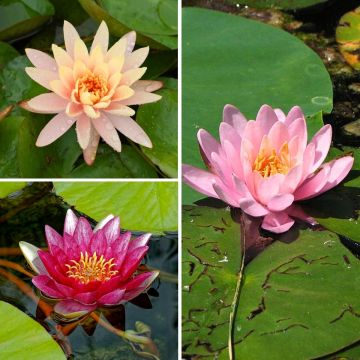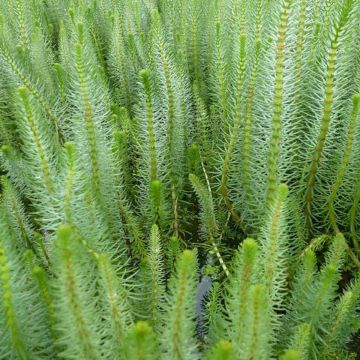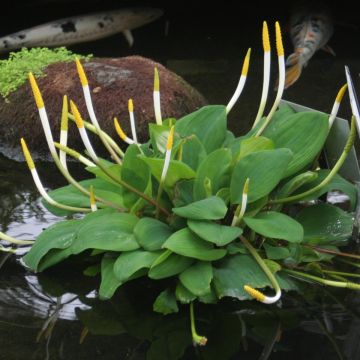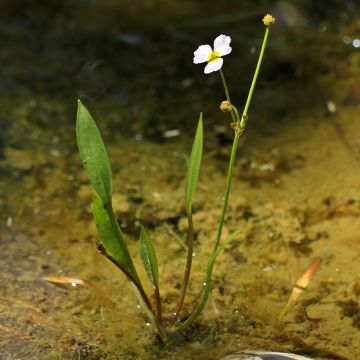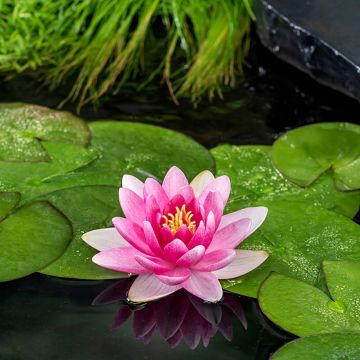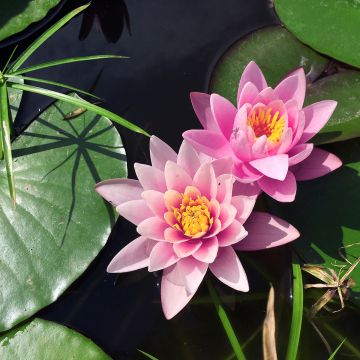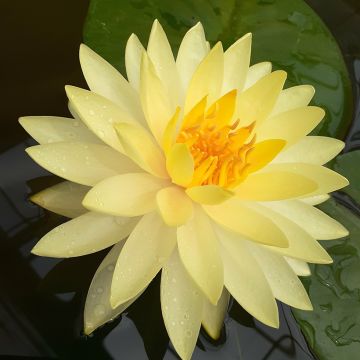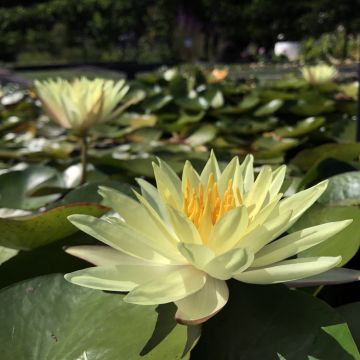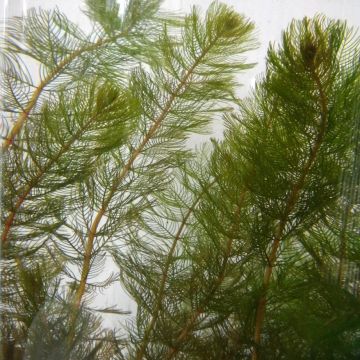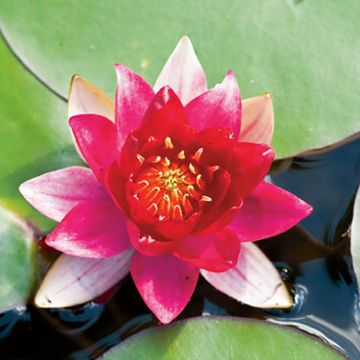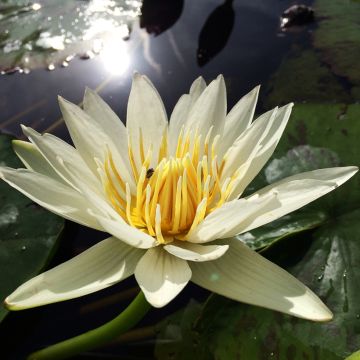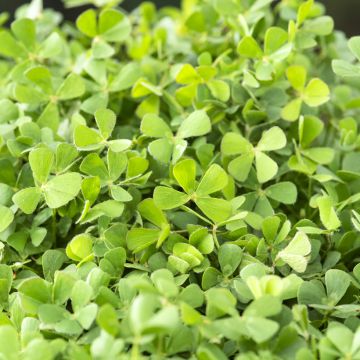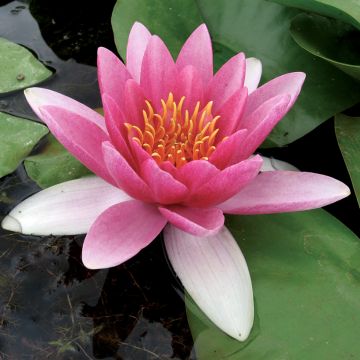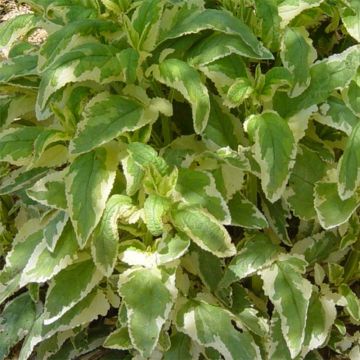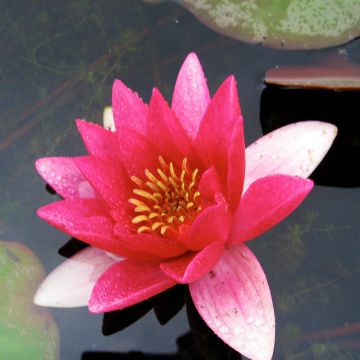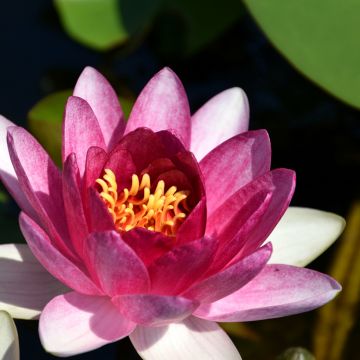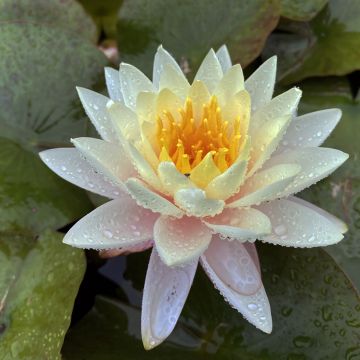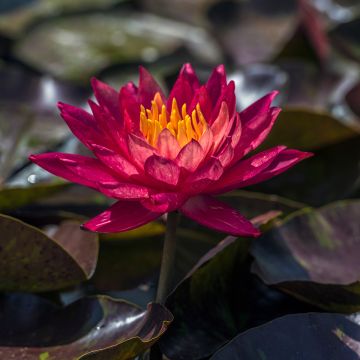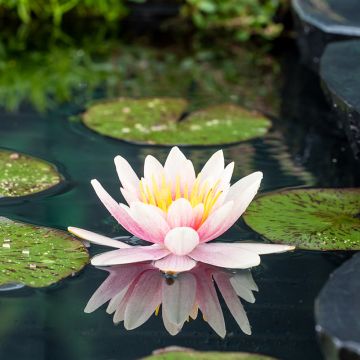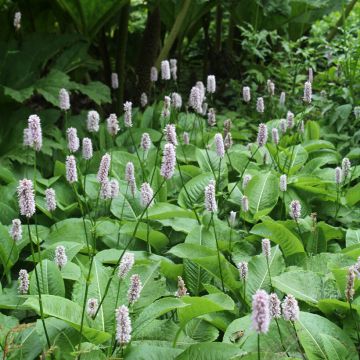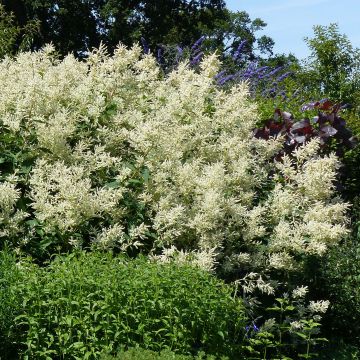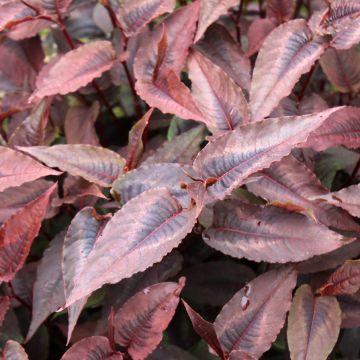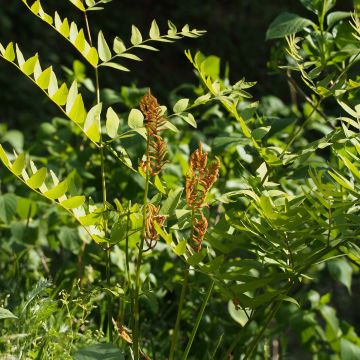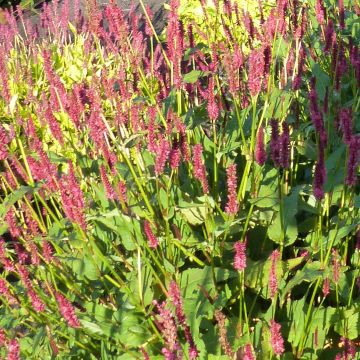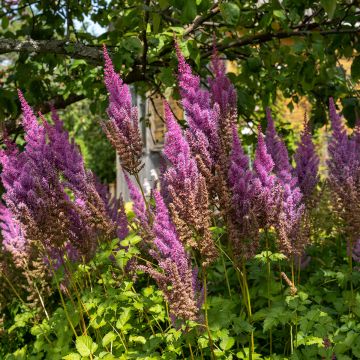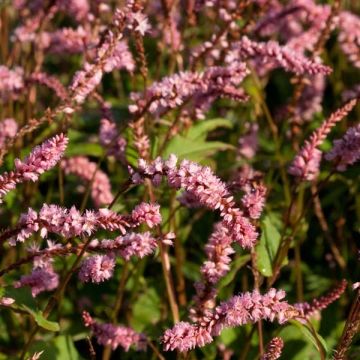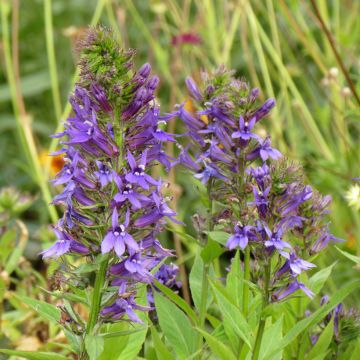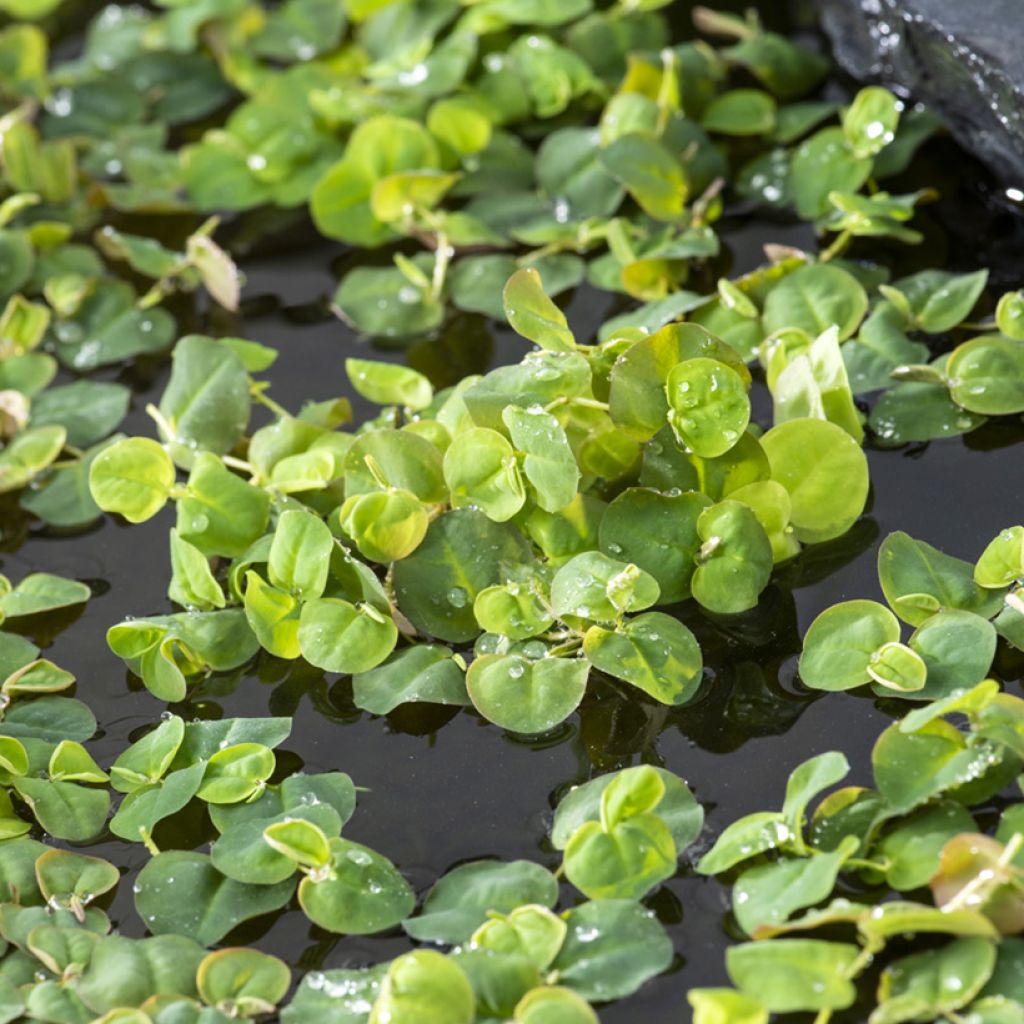

Phyllanthus fluitans
Phyllanthus fluitans
Phyllanthus fluitans
Special offer!
Receive a €20 voucher for any order over €90 (excluding delivery costs, credit notes, and plastic-free options)!
1- Add your favorite plants to your cart.
2- Once you have reached €90, confirm your order (you can even choose the delivery date!).
3- As soon as your order is shipped, you will receive an email containing your voucher code, valid for 3 months (90 days).
Your voucher is unique and can only be used once, for any order with a minimum value of €20, excluding delivery costs.
Can be combined with other current offers, non-divisible and non-refundable.
Why not try an alternative variety in stock?
View all →This plant carries a 6 months recovery warranty
More information
We guarantee the quality of our plants for a full growing cycle, and will replace at our expense any plant that fails to recover under normal climatic and planting conditions.
Description
Hippuris vulgaris is a perennial aquatic plant that is highly decorative, with vigorous growth, and can even be invasive in a pond. However, it is no longer common in France due to the threat to its habitat. It is not often used in domestic ponds, which is a shame because it can be very useful for oxygenating and purifying the water. It flowers in June and July, in the most limited way possible: the flowers, reduced to their bare minimum, are green. The small leaves are a beautiful shade of green.
Hippuris vulgaris belongs to the plantain family. It is a cosmopolitan plant, native to Europe and Asia. The mare's-tail is found in fresh water in ditches, lakes, ponds, and calm rivers. It is a perennial with a horizontal rhizome and tall stems from 20 to 50 cm (8 to 20in) tall, erect, simple, partly aerial, cylindrical, and hollow. The leaves are sessile, linear, entire, and without stipules. The flowers are hermaphroditic, greenish, small, and sessile, appearing in whorls in the axils of the leaves. The fruit is a slightly fleshy, ovoid drupe, about the size of a millet seed. The common mare's-tail develops its leaves in spring, which then die in autumn during frosts. It overwinters at the bottom of the pond in the form of rhizomes.
If the water depth is greater than 60 cm (24in), it is a completely submerged plant. It can develop a significant water plant community composed of a group of flexible, completely aquatic stems. If the depth is less than 60 cm (24in), the tips of the stems protrude from the water, resembling miniature fir trees, bright green and very striking. The leaves are shorter, rounded in section, and much firmer.
Install the Mare's-tail between 5 cm (2in) and 30 cm (12in) of water if you want to enjoy its emergent form. The plant prefers slightly alkaline or calcareous water. Using a container can limit its width in the beginning, but it often ends up growing out of it. This mare's-tail tends to spread a lot, so the solution is to remove a portion of it every year, which is not difficult. This operation helps prevent eutrophication of the pond (excessive nitrates, sediment, etc.). It is a way to balance the ecosystem.
The mare's-tail is an excellent oxygenating plant, with significant ecological value as it is very beneficial to aquatic fauna and less invasive than most others. Its emerging "fir trees" are of great value to aquatic life in general. These zones of exchange between the aerial environment and the water provide a privileged spot for dragonfly molting or amphibian resting. In the submerged part, invertebrates thrive, and fish come to spawn; fry and tadpoles find a safe haven there.
Not producing roots on the green stems, it is much easier to contain within a submerged pot or planter as it only proliferates through its rhizomes. As a nutrient-demanding plant, Mare's-tail also contributes to water purification by assimilating a portion of excessive nutrients: it absorbs a lot of nitrates and phosphates to support its rapid growth. Its withered stems can be used as green fertilizer to spread on another part of the garden.
Etymology of the name Hippuris: derived from Hippos = horse and Oura = tail, alluding to the terrestrial form of the plant.
Report an error about the product description
Flowering
Foliage
Plant habit
Botanical data
Phyllanthus
fluitans
Phyllanthaceae
South America
Other Aquatic perennials
View all →Planting and care
Install the horsetail between 5 cm (2in) and 30 cm (12in) of water to enjoy its emergent form. The plant prefers slightly alkaline or limestone water. Using a container helps limit its width growth initially, but it often ends up spreading out. This plant tends to spread a lot, and the solution is to remove a part of it every year, which is not difficult. To do this, shake the stems well above the water to let the insects and other small animals that inhabit them descend. Removing a bit of its mass every year helps prevent the eutrophication of the pond (excessive nitrate, silt, etc.). It's a way to balance the environment.
Planting period
Intended location
Care
This item has not been reviewed yet - be the first to leave a review about it.
Similar products
Haven't found what you were looking for?
Hardiness is the lowest winter temperature a plant can endure without suffering serious damage or even dying. However, hardiness is affected by location (a sheltered area, such as a patio), protection (winter cover) and soil type (hardiness is improved by well-drained soil).

Photo Sharing Terms & Conditions
In order to encourage gardeners to interact and share their experiences, Promesse de fleurs offers various media enabling content to be uploaded onto its Site - in particular via the ‘Photo sharing’ module.
The User agrees to refrain from:
- Posting any content that is illegal, prejudicial, insulting, racist, inciteful to hatred, revisionist, contrary to public decency, that infringes on privacy or on the privacy rights of third parties, in particular the publicity rights of persons and goods, intellectual property rights, or the right to privacy.
- Submitting content on behalf of a third party;
- Impersonate the identity of a third party and/or publish any personal information about a third party;
In general, the User undertakes to refrain from any unethical behaviour.
All Content (in particular text, comments, files, images, photos, videos, creative works, etc.), which may be subject to property or intellectual property rights, image or other private rights, shall remain the property of the User, subject to the limited rights granted by the terms of the licence granted by Promesse de fleurs as stated below. Users are at liberty to publish or not to publish such Content on the Site, notably via the ‘Photo Sharing’ facility, and accept that this Content shall be made public and freely accessible, notably on the Internet.
Users further acknowledge, undertake to have ,and guarantee that they hold all necessary rights and permissions to publish such material on the Site, in particular with regard to the legislation in force pertaining to any privacy, property, intellectual property, image, or contractual rights, or rights of any other nature. By publishing such Content on the Site, Users acknowledge accepting full liability as publishers of the Content within the meaning of the law, and grant Promesse de fleurs, free of charge, an inclusive, worldwide licence for the said Content for the entire duration of its publication, including all reproduction, representation, up/downloading, displaying, performing, transmission, and storage rights.
Users also grant permission for their name to be linked to the Content and accept that this link may not always be made available.
By engaging in posting material, Users consent to their Content becoming automatically accessible on the Internet, in particular on other sites and/or blogs and/or web pages of the Promesse de fleurs site, including in particular social pages and the Promesse de fleurs catalogue.
Users may secure the removal of entrusted content free of charge by issuing a simple request via our contact form.
The flowering period indicated on our website applies to countries and regions located in USDA zone 8 (France, the United Kingdom, Ireland, the Netherlands, etc.)
It will vary according to where you live:
- In zones 9 to 10 (Italy, Spain, Greece, etc.), flowering will occur about 2 to 4 weeks earlier.
- In zones 6 to 7 (Germany, Poland, Slovenia, and lower mountainous regions), flowering will be delayed by 2 to 3 weeks.
- In zone 5 (Central Europe, Scandinavia), blooming will be delayed by 3 to 5 weeks.
In temperate climates, pruning of spring-flowering shrubs (forsythia, spireas, etc.) should be done just after flowering.
Pruning of summer-flowering shrubs (Indian Lilac, Perovskia, etc.) can be done in winter or spring.
In cold regions as well as with frost-sensitive plants, avoid pruning too early when severe frosts may still occur.
The planting period indicated on our website applies to countries and regions located in USDA zone 8 (France, United Kingdom, Ireland, Netherlands).
It will vary according to where you live:
- In Mediterranean zones (Marseille, Madrid, Milan, etc.), autumn and winter are the best planting periods.
- In continental zones (Strasbourg, Munich, Vienna, etc.), delay planting by 2 to 3 weeks in spring and bring it forward by 2 to 4 weeks in autumn.
- In mountainous regions (the Alps, Pyrenees, Carpathians, etc.), it is best to plant in late spring (May-June) or late summer (August-September).
The harvesting period indicated on our website applies to countries and regions in USDA zone 8 (France, England, Ireland, the Netherlands).
In colder areas (Scandinavia, Poland, Austria...) fruit and vegetable harvests are likely to be delayed by 3-4 weeks.
In warmer areas (Italy, Spain, Greece, etc.), harvesting will probably take place earlier, depending on weather conditions.
The sowing periods indicated on our website apply to countries and regions within USDA Zone 8 (France, UK, Ireland, Netherlands).
In colder areas (Scandinavia, Poland, Austria...), delay any outdoor sowing by 3-4 weeks, or sow under glass.
In warmer climes (Italy, Spain, Greece, etc.), bring outdoor sowing forward by a few weeks.






























